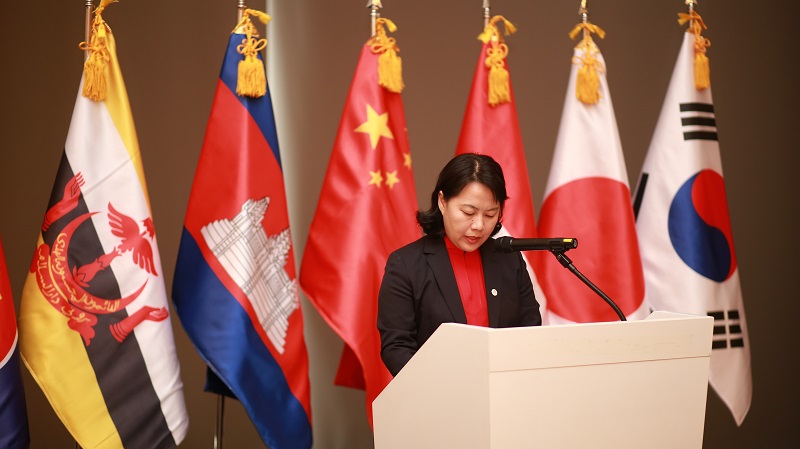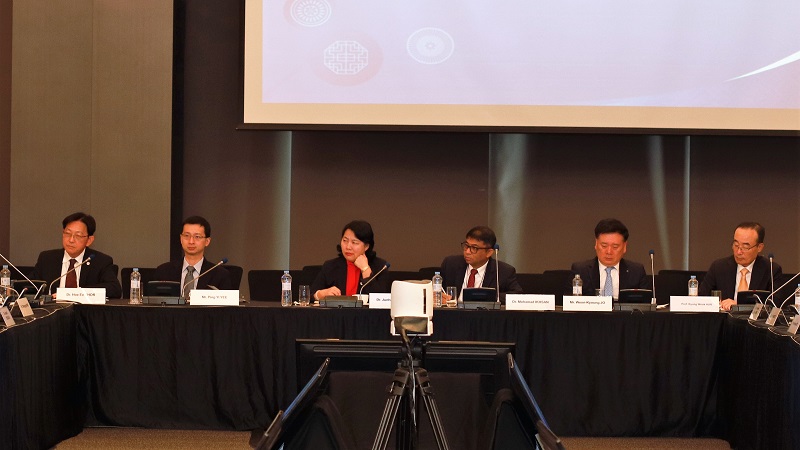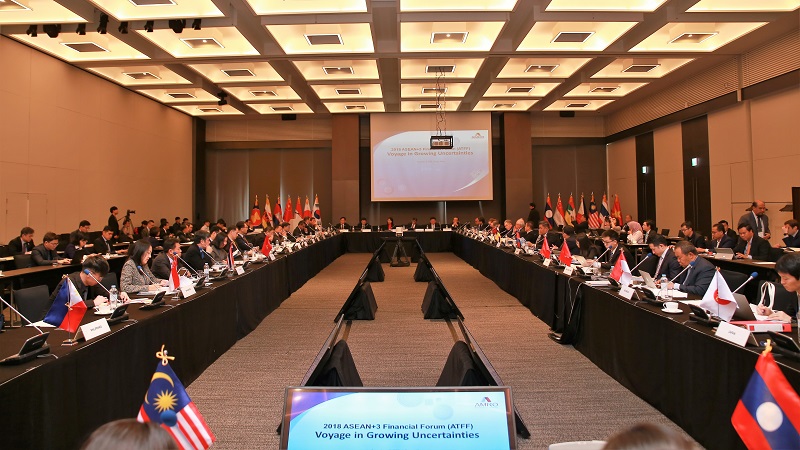ASEAN+3 Financial Forum (ATFF) 2018: Voyage in Growing Uncertainties
ASEAN+3 Financial Forum (ATFF) 2018: Voyage in Growing Uncertainties
Wednesday, December 12, 2018, 09:00 am – 03:40 pm
Contact: enquiry@amro-asia.org
The 3rd ASEAN+3 Financial Forum (ATFF) with the theme of “Voyage in Growing Uncertainties” will be held back to back with the ASEAN+3 Finance and Central Bank Deputies’ Meeting (AFCDM+3) in Busan, Korea, on December 12, 2018.
Hosted by the ASEAN+3 Macroeconomic Research Office (AMRO), the full-day program will focus on how ASEAN+3 members continue to sustain growth and stability in the face of growing uncertainties, including the global trade issues and tightening financial conditions. In this context, the forum will also discuss the future of ASEAN+3 regional financial cooperation, with a focus on enhancing the regional financing arrangement – the Chiang Mai Initiative Multilateralisation (CMIM) – and its contribution to the global financial safety net. Speakers and discussants include high-level policy makers, renowned academics and economists who have strong background and experience on both regional and global issues.
AMRO Director Dr. Junhong Chang will deliver welcome remarks. In their capacity as the Co-chairs of AMRO Executive Committee in 2018, Mr. Weon-Kyoung JO, Director General for G20, IMF and ASEAN+3, International Finance Bureau, Ministry of Economy and Finance, Korea, and Mr Ping Yi Yee, Deputy Secretary (Planning) of Ministry of Finance of Singapore, will deliver keynote addresses at the forum.
Dr. Hoe Ee Khor, AMRO Chief Economist, will facilitate the first panel discussion on “Asia-Sustaining Growth and Stability in the Face of Uncertainties.” Professor Kyung Wook Hur, Former AMRO Advisory Panel Member, will moderate the second panel discussion on “Managing Financial Globalization: Policy Responses and Strengthening of Regional Financial Safety Nets.” Dr. Jae-Soo Yoo, Vice Mayor for Economic Affairs of Busan Metropolitan City, will deliver a luncheon speech on “Lunchtable Economics on Financial Crisis: Are we ready to face another financial crisis?”
Inaugurated in 2016, the ATFF acts as a flagship platform for ASEAN+3 Deputies, academics and high-level representatives of international financial institutions to brainstorm on major issues related to regional economic and financial cooperation.
The event is by invitation only.
Program
Speakers
Mr. Byungseo YOO
Deputy Director of AMRO
Dr. Junhong CHANG
AMRO Director
Mr. Weon-Kyoung JO
Director General for G20, IMF and ASEAN+3, International Finance Bureau, Ministry of Economy
Mr. Ping Yi YEE
Deputy Secretary (Planning), Ministry of Finance, Singapore
Dr. Hoe Ee KHOR
Chief Economist, AMRO
Dr. Changyong RHEE
Director of Asia Pacific Department, IMF
Dr. Joseph E. ZVEGLICH Jr.
Deputy Chief Economist, Asian Development Bank
Prof. Suahasil NAZARA
Chairman, Fiscal Policy Agency, Ministry of Finance, Indonesia
Dr. Akira ARIYOSHI
AMRO’s Advisory Panel Member from 2015 and Former Professor, School of International and Public Policy, Hitotsubashi University
Mr. Marzunisham Bin OMAR
Assistant Governor, Bank Negara Malaysia
Mr. Diwa C. GUINIGUNDO
Deputy Governor, Monetary and Economics Sector, Bangko Sentral ng Pilipinas
Mr. Byungseo YOO
Deputy Director of AMRO
Dr. Jae-Soo YOO
Vice Mayor for Economic Affairs, Busan Metropolitan City
Professor Kyung Wook HUR
Former 1st Vice Minister of Strategy and Finance, and Former Ambassador Extraordinary and Plenipotentiary of Korea to OECD (Paris) and Former AMRO Advisory Panel Member
Mr. Yasuto WATANABE
Deputy Director, AMRO
Dr. Muhamad Chatib BASRI
Former Minister of Finance, Indonesia
Dr. Yoichi NEMOTO
Professor, School of International and Public Policy, Hitotsubashi University
Prof. Hiroyuki ITO
Portland State University, USA
Dr. Petya Koeva BROOKS
Deputy Director, Strategy, Policy and Review Department, IMF
Dr. Mark SOBEL
US Chairman, OMFIF
Mr. Marc UZAN
Executive Director, Reinventing Bretton Woods Committee
Dr. Mohamad IKHSAN
Chair of AMRO Advisory Panel, Advisor to the Vice President of the Republic of Indonesia
Photos



